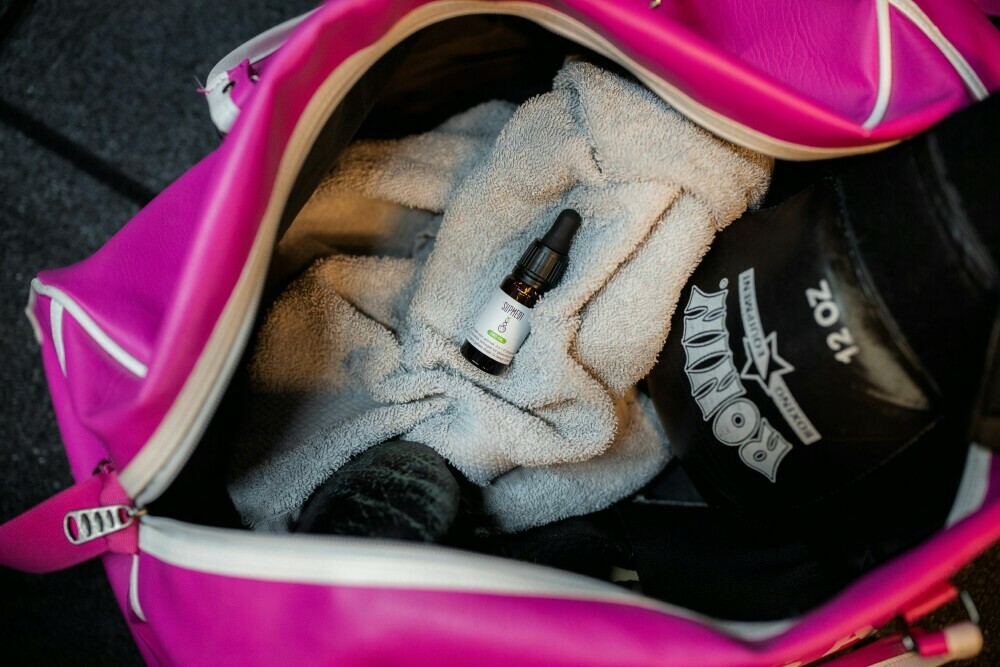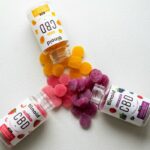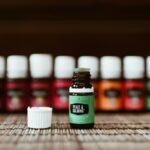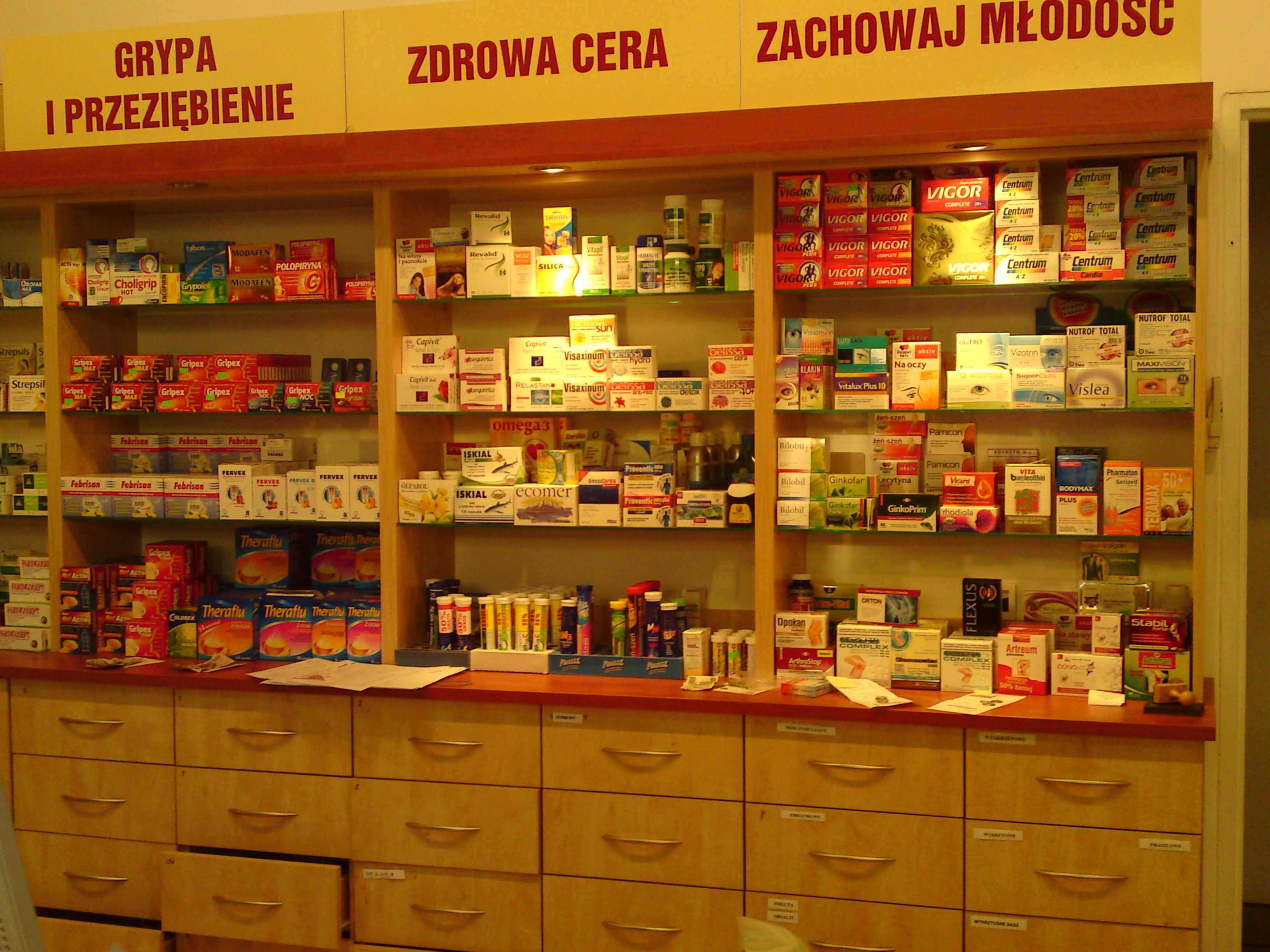
If you’re an athlete or someone dedicated to fitness, you’ve likely grappled with the challenge of recovery. Muscle soreness, inflammation, and the toll of strenuous workouts call for effective solutions. That’s where CBD oil enters the scene it’s been gaining traction as a promising aid in sports recovery. But what exactly is this compound, and why is it becoming synonymous with post-exercise recuperation?
CBD, or cannabidiol, is one of many chemicals found in cannabis plants. Unlike THC, the psychoactive component that gets people high, CBD is celebrated for its potential therapeutic properties, without leaving users foggy or impaired. You’re going to find out about how athletes from various sports disciplines have started to look toward this natural supplement for recovery aid without risking mental clarity.
Is it legal, though? This is crucial for professional athletes who undergo regular drug testing. Fortunately, CBD oil has cleared some significant hurdles on the regulatory track. The World Anti-Doping Agency removed CBD from its list of banned substances, making it a legal option for athletes worldwide. Still, there’s a caveat it must be pure, with no traces of THC, to avoid positive drug tests and potential sanctions.
As this introduction sails smoothly into the nitty-gritty of CBD oil, we’ll delve deeper into the composition of CBD oil, its specific functions in aiding recovery, and reinforce the legal considerations cause, let’s face it, staying on the right side of the rules is as important as the recovery itself. There’s a lot of ground to cover, so let’s help you understand whether CBD oil could be a valuable player in your sports recovery lineup.
Decoding CBD Oil: Composition, Function and Legal Considerations

I’m here to help you peel back the layers on what CBD oil really is and how it functions in the realm of sports recovery. CBD oil, or cannabidiol oil, is derived from the cannabis plant. Unlike its more infamous cousin THC, CBD doesn’t give you a ‘high.’ That’s because it interacts with your body’s endocannabinoid system in a way that promotes homeostasis without the psychoactive effects.
In my opinion, the endocannabinoid system is like a complex network in your body that’s involved in numerous physiological processes, including pain sensation, mood, memory, and yes, recovery from exercise. CBD oil taps into this system, potentially reducing inflammation and pain, which is, guess what? Exactly what you need after a grueling workout.
Now, is it legal for athletes? That’s a big question. As of my last update, CBD oil itself has been removed from the World Anti-Doping Agency’s list of banned substances. This means that athletes can, generally speaking, use CBD oil without worry of disqualification, provided it contains no more than 0.3% THC. But, and this is important, regulations and rules can vary by organization and region, so you absolutely must do your homework here.
Is CBD oil psychoactive? No, it’s not. This is a common misconception because people usually associate anything related to cannabis with getting ‘high’. CBD, however, does not have the psychoactive properties that THC does. So, for athletes concerned about focus and keeping their head in the game, CBD oil can be a reassuring option.
Harnessing the Benefits: CBD Oil for Enhanced Recovery
Now you’re wondering about the real deal what can CBD oil actually do for you post-workout or game? You’ve probably heard locker room banter or gym whispers about how it’s helping your teammates or fitness buddies manage their recovery. Let’s clear the air and talk about the concrete potential benefits of using CBD oil for sports recovery.
First off, CBD oil is known for its anti-inflammatory properties. This isn’t just about reducing swelling; it’s also about helping your muscles heal after the stress of exercise. Think about the muscle soreness that creeps in after a heavy lifting session or a long run CBD oil might be the ally you need to help calm those screaming muscles.
Besides battling inflammation, CBD is also championed for its ability to help manage pain. We’re not talking about heavy-duty, painkiller-level relief, but for niggles and discomfort that can sometimes sideline you, CBD may provide a gentler alternative to typical anti-inflammatory drugs (NSAIDs), which often come with a laundry list of side effects.
What’s even more interesting is the research suggesting that CBD can help with sleep quality. Good sleep is crucial for recovery it’s when your body goes into overdrive repairing and strengthening itself. If CBD oil can help you catch more Z’s, that’s a win for recovery.
All of these benefits sound promising, but it’s crucial to remember that everyone’s body chemistry is unique. Your first attempt at using CBD oil may not be a home run, and that’s okay. You can always adjust your approach down the road.
Now, it’s time to weigh the pros against potential cons. You might be wondering if such a seemingly magic elixir has a downside. I’m going to lead you straight into the next section, where we talk about any side effects that may come with using CBD oil for sports recovery. Don’t worry too much about it, though; knowledge is power, and I’m here to help you make an informed decision.
Navigating the Risks: Side Effects and Dosage Guidelines
When talking about introducing something new to your routine, safety and knowledge are key. I’m going to take you through what you need to know about the side effects and dosage of CBD oil for sports recovery.
It’s clear that CBD oil has fans, but I’m here to help you stick to the facts. Side effects from CBD oil can include fatigue, changes in appetite, and sometimes diarrhea. It’s rare, but some people may experience liver issues. This isn’t just a one-sided story, though – many people use CBD without any issues. Just don’t overlook the importance of monitoring how it affects you personally.
Now, the dosage – this is where it gets a bit complex. The right amount of CBD oil can vary widely depending on several factors, including your body weight, the type of product you’re using, and what you’re using it for. You’re not alone if you’re feeling confused. There’s no one-size-fits-all, but starting low and going slow is the common mantra.
Don’t expect an exact number here, because what works for one person may not work for another. If you’re starting out, consider a small dose like 5 mg, and be sure to wait and see how your body responds before you take more. Over time, you can adjust based on your recovery needs.
Just a heads-up: If you’re taking other supplements or medications, it’s vital to consider potential interactions. I’d recommend chatting with a healthcare professional. They can provide tailored advice that takes into account your entire sports recovery regime, ensuring that CBD oil complements your routine safely.
CBD Oil in Your Routine: Strategies for Incorporation and Usage

Choosing to integrate CBD oil into your sports recovery regimen is a personal decision that should align with your wellness goals and compliance with sport regulations. Before you bring CBD oil into your routine, you’ll want to reflect on your specific recovery needs and objectives.
You have various options for how to take CBD oil, each with its own set of advantages. Topical applications can target localized areas of muscle soreness, sublingual drops might offer more immediate systemic effects, and capsules provide the convenience of precise dosages. Your choice should resonate with your lifestyle and recovery preferences.
When deciding if CBD oil is a good fit for you, consider the following: Are you looking for a natural addition to your recovery arsenal? Have you consulted with healthcare providers and coaching staff to ensure no contraindications with your current supplements or medications? Are you prepared to monitor your body’s response and adjust your usage as necessary?
Remember, while CBD oil may offer potential benefits for sports recovery, it does not replace foundational recovery methods such as proper nutrition, hydration, sleep, and scientifically-proven modalities. It should be considered a potential complement to an established and effective recovery routine.
If you choose to try CBD oil, start with the lowest recommended dosage and observe how your body responds. Keep detailed records of your recovery progress, any side effects you experience, and how you feel overall. Adjust your approach based on your experiences and in consultation with professionals if necessary.
I really hope that this gives you a clearer picture of the potential place of CBD oil in sports recovery. It’s not a magic solution, but for some, it can be an effective tool when used responsibly. Always prioritize your health and safety, stay informed, and choose what aligns best with your personal health approach and athletic commitments.
CBD Oil
If you’re looking for a versatile and potent addition to your recovery routine, CBD oil is a great starting point. Known for its anti-inflammatory and pain-relieving properties, it can help soothe sore muscles and reduce post-workout inflammation. Whether applied topically to targeted areas or taken sublingually for systemic effects, it can be a valuable tool in managing recovery.
Shop NowCBN Oil
For athletes struggling with sleep issues, CBN oil (cannabinol) might be the solution. Known for its sedative effects, CBN can help improve sleep quality, which is crucial for effective recovery. By ensuring you get restful and uninterrupted sleep, CBN oil supports your body’s natural repair processes, allowing you to wake up rejuvenated and ready for your next training session.
Shop NowCBD Edibles
For those who prefer a tastier method of consumption, CBD edibles are an appealing option. These can range from snacks to more substantial food items, all infused with CBD to help manage post-exercise inflammation and pain. Edibles are discreet and easy to incorporate into your daily routine, providing sustained relief throughout the day.
Shop NowCBD Drinks
Hydration is key in sports recovery, and CBD-infused drinks offer a convenient way to stay hydrated while reaping the benefits of CBD. These beverages can help reduce inflammation and muscle soreness, making them an excellent choice for post-workout recovery. Plus, they’re a refreshing way to integrate CBD into your routine.
Shop Now








38 responses to “CBD Oil For Sports Recovery”
Hello,
Your articles about CBD oil are right on the money. CBD has become very popular in the past few years and it truly does work on sore muscles, aches and pains, and many other things.
Your articles about the benefits of CBD oil are outstanding and even though there are many people against it because it is taken from the hemp plant, it is not like using the products your discuss are getting you high. They are giving you much needed relief.
I am a firm believer in CBD oil’s benefits and thank you for bringing this misunderstood product to our attention.
I have also used CBD oil for anxiety and it works well for that also.
Thank you,
Mike Powers
Hi Mike,
Thank you so much for your thoughtful comment! It’s truly heartening to hear that you’ve found value in our articles on CBD oil.
Indeed, the rising popularity of CBD over the past few years is a testament to its effectiveness in addressing various health concerns, from sore muscles to anxiety. Your experience echoes what many others have reported – the relief it provides without the psychoactive effects commonly associated with cannabis.
It’s unfortunate that there’s still some stigma surrounding CBD due to its association with the hemp plant. However, as more research emerges and people share their positive experiences, we hope to see a shift in perceptions.
I’m thrilled to hear that CBD has also helped alleviate your anxiety. Mental health is just as important as physical well-being, and it’s inspiring to know that CBD has made a positive difference for you in that regard.
Thank you once again for sharing your experience and for your support. If you ever have any questions or topics you’d like us to cover in future articles, feel free to reach out.
Best regards,
Adnan
Hello. Great insights on the potential benefits of CBD oil for sports recovery! It’s fascinating to see how CBD, a non-psychoactive compound from cannabis, is becoming a go-to aid for athletes dealing with muscle soreness, inflammation, and recovery. The legal clarity provided by the World Anti-Doping Agency makes it an appealing option for professionals. Your breakdown of CBD’s interaction with the body’s endocannabinoid system, its anti-inflammatory properties, and potential to improve sleep is very informative. Thanks for shedding light on this natural supplement and how it can fit into a recovery regimen. Looking forward to exploring more on this topic!
Hi Ela,
Thank you for your kind words and insightful comments! It’s indeed fascinating how CBD oil is gaining recognition as a valuable aid for athletes in managing muscle soreness, inflammation, and recovery. The World Anti-Doping Agency’s stance on CBD certainly adds to its appeal for professionals.
I’m glad you found our breakdown of CBD’s interaction with the body’s endocannabinoid system, its anti-inflammatory properties, and its potential to improve sleep informative. It’s our aim to provide valuable insights into natural supplements like CBD and how they can benefit recovery regimens.
We’re thrilled to hear that you’re interested in exploring more on this topic! If you have any specific questions or topics you’d like us to delve into further, feel free to let us know. We’re here to help!
Best regards,
Adnan
Hey Adnan,
Great article and really interesting read, I am a 50 year old man that still plays football (or soccer depending where in the world you are from) so muscle soreness is something I am very used to. I have heard the law on this is different in each country so is there an easy way to find out if this is legal in my country please? Also I know that you mention you can apply it direct to the muscle or ingest it but is there a recommended way to take CBD oil for muscle soreness.
Many thanks
Pete
Hi Pete,
Thank you for your kind words and for sharing your experience with us! It’s fantastic to hear that you’re still actively playing football at 50 – a testament to your dedication to staying fit and healthy.
Regarding the legality of CBD oil in your country, the laws indeed vary from one place to another. The easiest way to find out the specific regulations in your area would be to consult your local government or health department’s website. They often provide up-to-date information on the legal status of CBD products.
As for the best way to take CBD oil for muscle soreness, there are indeed various methods, and the most suitable one can depend on personal preference and the severity of the soreness. Applying CBD topically directly to the affected muscles can offer targeted relief, while ingesting it through oils, capsules, or edibles provides a more systemic effect. Some people also find relief from using a combination of both methods.
If you’re new to using CBD for muscle soreness, I recommend starting with a low dose and gradually increasing it as needed while monitoring how your body responds. It’s also a good idea to consult with a healthcare professional, especially if you have any underlying medical conditions or are taking other medications.
I hope this helps, Pete! If you have any further questions or need more information, feel free to reach out.
Best regards,
Adnan
Hey,
This article on CBD oil for recovery is fascinating!
As a yogist who focuses heavily on breathwork and mindful movement, I’m always interested in natural ways to enhance recovery. While I don’t experience the intense muscle soreness some athletes might, I do sometimes deal with tightness or tension after a long day of working.
The idea of CBD oil for reducing inflammation and promoting better sleep is intriguing. I know many of my colleagues struggle with sleep issues, and if CBD could help them achieve deeper rest, that would be amazing.
However, navigating the legalities and potential side effects is a bit daunting. I wouldn’t want to recommend anything to my colleagues unless I was confident it was safe and wouldn’t interfere with any medications they might be taking.
Do you have any resources you could recommend for learning more about reputable CBD oil brands and potential interactions with medications? Perhaps an article specifically on using CBD oil for recovery in low-impact activities like yoga?
Thanks for such an informative post!
Hi Lili,
Thanks for sharing your thoughts! It’s fantastic to hear your perspective as a yogist focused on breathwork and mindful movement. CBD oil indeed holds promise for reducing inflammation and promoting better sleep, which can be beneficial for anyone, regardless of the intensity of their physical activity.
Navigating the legalities and potential side effects can indeed be overwhelming, especially when considering recommending CBD oil to others. Ensuring safety and efficacy is paramount. When it comes to reputable CBD oil brands and potential interactions with medications, there are a few resources I can recommend.
Firstly, for information on reputable CBD brands, you can look for companies that provide third-party lab testing results for their products. Transparency and quality assurance are key. Additionally, seeking out reviews and testimonials from trusted sources can provide insights into the effectiveness and reliability of specific brands.
As for potential interactions with medications, it’s always best to consult with healthcare professionals, such as pharmacists or physicians, who can provide personalized advice based on individual health circumstances and medication regimens. They can help identify any potential contraindications and ensure safe usage of CBD oil alongside other medications.
While there may not be specific articles on using CBD oil for recovery in low-impact activities like yoga, many resources provide general information on CBD oil usage and its potential benefits. Websites of reputable CBD brands often include educational sections with articles and FAQs that cover various aspects of CBD usage, including its application in different activities and lifestyles.
Ultimately, staying informed and prioritizing safety is key when considering incorporating CBD oil into your wellness routine or recommending it to others. I hope this helps, and if you have any further questions or concerns, feel free to ask!
Best regards,
Adnan
CBD products have become very popular and at the same time many companies to choose from. Being over 60 I am experiencing recovery slower than it used to be. I am a little hesitant about using this type of product at my age.
From all the awesome information you have shared in your article, you sound to be an expert on CBD products. How would someone research companies to be sure to buy a legitimate product of this type, I have learned so much from reading your article and will be back again
Thank you
Jeff
Hi Jeff,
Thank you for your insightful comment! It’s completely understandable to have reservations, especially when considering new products, regardless of age. CBD products have indeed surged in popularity, and navigating the market can be overwhelming, particularly with the abundance of options available.
Researching companies to ensure you purchase a legitimate product is crucial, especially for your peace of mind and safety. Here are a few tips to help you find a reputable CBD company:
1. Check for Third-Party Lab Testing: Legitimate CBD companies often provide third-party lab testing results for their products. These tests verify the potency and purity of the CBD oil and ensure that it meets safety standards.
2. Read Customer Reviews and Testimonials: Reviews and testimonials from other consumers can offer valuable insights into the quality and effectiveness of a product. Look for authentic reviews on trusted platforms.
3. Verify the Source of Hemp: High-quality CBD products are sourced from organic hemp plants grown in reputable locations. Transparency about the source of hemp is a good indicator of a trustworthy company.
4. Look for Transparency and Clear Information: Legitimate companies are transparent about their extraction methods, manufacturing processes, and ingredients used in their products. Clear and comprehensive information on their website is a positive sign.
5. Consider Customer Service and Support: A reputable CBD company typically provides excellent customer service and support. Look for companies that are responsive to inquiries and provide helpful guidance.
As for using CBD products at your age, it’s essential to consult with a healthcare professional before incorporating them into your routine, especially if you have any underlying health conditions or are taking medications. They can offer personalized advice based on your individual needs and circumstances.
I’m glad to hear that you found the information in the article helpful! If you have any further questions or concerns, feel free to reach out. Wishing you all the best on your wellness journey, Jeff!
Warm regards,
Adnan
Because of its origin, there are 2 main questions that come to mind whenever CBD is mentioned: is it legal? And, does it make you high? Thank you so much for demystifying and clearing the fog around the product. I have never used it myself, but it has been legalized in my country, I have never even thought of trying for fear of getting high lol, but thanks to your article, CBD is worth the try.
I’m glad the article helped clarify things for you! CBD’s legality and its potential to cause a high are common concerns, especially for newcomers. It’s great that your country has legalized it, offering you the chance to explore its benefits without worry.
CBD won’t get you high like THC does; it’s all about tapping into therapeutic properties without affecting your mental clarity. If you decide to try it, start with a low dose and observe how your body responds. And as always, consulting with a healthcare professional is wise.
Thanks for sharing your thoughts, and if you have any more questions, feel free to ask!
Hey Adnan,
Thank you for your insightful blog post on CBD oil for sports recovery. Your research and explanations on the potential benefits of CBD oil in post-workout recovery were enlightening. The holistic approach you advocate for optimizing performance and promoting overall well-being resonated with me. Your article is a valuable resource for athletes and fitness enthusiasts looking to explore CBD oil’s potential in their sports recovery journey. Keep up the great work!
Marios
Hi there
I like that your article offers a comprehensive and engaging overview of how CBD oil can benefit athletes in their recovery process. It effectively highlights the potential of CBD to alleviate pain, reduce inflammation, and promote better sleep, which are crucial aspects of sports recovery.
The content is well-structured, making it easy to follow and understand for readers who might be new to CBD. Additionally, the inclusion of scientific references adds credibility to the claims.
One question I have is: Have you conducted any case studies or gathered testimonials from athletes who have used CBD oil for their recovery?
Hello again Troy!
I’m thrilled to hear that you found the overview of CBD oil for sports recovery comprehensive and engaging. It’s fantastic to know that the structure and inclusion of scientific references helped make it accessible, especially for those new to CBD.
Regarding your question about case studies and testimonials from athletes using CBD oil for recovery, it’s an excellent point. While the article didn’t specifically delve into individual case studies or testimonials, there’s a wealth of anecdotal evidence and emerging research suggesting the benefits of CBD oil in sports recovery. However, gathering specific case studies and testimonials could indeed add another layer of depth and credibility to the discussion.
If you’re interested in exploring real-life experiences with CBD oil in sports recovery further, I’d recommend checking out reputable sources like athlete interviews, sports medicine journals, or CBD brands that specialize in products for athletes.
Hello. CBD is definitely a great choice for pain relief although I’m not sure how much it actually helps to heal. It’s so silly that it shows up on drug test though. Even marijuana. I can’t see how that’s considered unfair to use it. If anything it makes you dumber. It can help by making you a little bit happier but big deal.
Thanks for sharing your thoughts on CBD oil and its potential for pain relief. It’s frustrating that it can show up on drug tests despite not impairing like marijuana does. However, regulations are evolving to accommodate its use, especially in sports where recovery is crucial.
CBD’s ability to aid in recovery without affecting mental clarity is why it’s gaining popularity among athletes. It taps into the body’s natural systems to reduce inflammation and manage pain after workouts.
As for its legality, CBD oil has been removed from the list of banned substances by major organizations like the World Anti-Doping Agency. But it’s crucial to ensure the product is pure and contains no THC to avoid issues with drug tests.
Thanks for contributing to the discussion on CBD oil’s potential in sports recovery!
I love the comprehensiveness of the potential benefits and considerations of using CBD oil for sports recovery. Thank you for explaining the science behind CBD’s effects, its legal status for athletes, and practical advice on incorporating it into a recovery routine. I do have a question though. How does the effectiveness of CBD oil in managing post-exercise inflammation and pain compare to traditional anti-inflammatory drugs like NSAIDs?
Hello Scott,
It’s fantastic to hear that you found the blog post comprehensive and helpful! Regarding your question about how CBD oil stacks up against traditional anti-inflammatory drugs like NSAIDs for managing post-exercise inflammation and pain, it’s an important comparison to make.
CBD oil offers a promising alternative to NSAIDs due to its natural anti-inflammatory properties. While NSAIDs can provide relief, they often come with a host of potential side effects. CBD, on the other hand, may offer a gentler option without the risks associated with long-term NSAID use, such as gastrointestinal issues. Additionally, CBD’s interaction with the body’s endocannabinoid system can promote overall homeostasis and aid in pain management, potentially offering a more holistic approach to recovery. However, it’s essential to recognize that individual responses to CBD can vary, so finding the right dosage and monitoring your body’s reaction is key. Ultimately, consulting with a healthcare professional can help you navigate the best course of action for your specific needs and circumstances.
Great insights on the potential benefits of CBD oil for sports recovery! The legal clarity provided by the World Anti-Doping Agency makes it an appealing option for professionals. Your breakdown of CBD’s interaction with the body’s endocannabinoid system, its anti-inflammatory properties, and potential to improve sleep is very informative. Thanks for shedding light on this natural supplement and how it can fit into a recovery regimen. Looking forward to exploring more on this topic!
Hi Mercy,
As someone who’s deeply passionate about fitness and wellness, I can relate to the quest for effective recovery aids.
Personally, I’ve been exploring CBD oil myself, and I’ve found it fascinating to delve into its potential benefits for post-exercise recuperation. It’s not just about hitting the gym hard; it’s also about ensuring that our bodies recover optimally to perform at their best. The fact that CBD oil has gained legal approval from the World Anti-Doping Agency adds an extra layer of reassurance for athletes like us who prioritize staying on the right side of the rules.
I’m genuinely excited for you as you continue your exploration into this topic. It’s a journey filled with potential discoveries and, hopefully, enhanced recovery experiences. Remember to listen to your body, start with conservative dosages, and keep an open mind as you navigate incorporating CBD oil into your recovery regimen.
Here’s to unlocking new levels of performance and well-being together!
Thanks Adnan. It was great to find alternatives to over the counter medication for recovery. Do you know if it would be safe to utilize a CBD topical treatment and CBD oil at the same time?
I have utilized CBD for one of my dogs when she was having some anxiety from fireworks which helped greatly with no side effects so, I know this is a great option for many things.
Hi Michele,
I’m so glad you found the information helpful! It’s great to hear about your positive experience with CBD for your dog’s anxiety – it’s amazing how versatile CBD can be.
Regarding your question about using a CBD topical treatment and CBD oil simultaneously, yes, it’s generally considered safe to use both at the same time. Topical treatments work locally to address pain and inflammation in specific areas, while CBD oil taken orally can provide more systemic benefits, such as reducing overall inflammation and aiding in recovery. Combining the two can be particularly effective for comprehensive relief and recovery.
However, it’s always wise to start with lower doses when combining products and monitor how your body responds. Everyone’s endocannabinoid system is unique, so what works well for one person might need adjustments for another. If you’re taking other medications or have specific health concerns, consulting with a healthcare professional can provide personalized advice and ensure there are no interactions or contraindications.
Keep an eye on how you feel and adjust as necessary. It sounds like you’re already quite knowledgeable about CBD, so you’re on the right track to making informed decisions. Wishing you the best with your recovery journey!
Take care,
Adnan
It’s interesting to know that CBD oil is helping athletes in their recovery from injuries.
I understand this can be bought over the counter, but do doctors actually prescribe them, as well?
Starting at a low dose is a good recommendation because not everyone has the same response or side effects, if there are any.
Is there an age limit as to who can use them? At what age are they safe to use?
Marita
Hi Marita,
Thank you for your comment. I’m glad you found the article interesting! CBD oil’s role in athletic recovery is indeed fascinating and growing in popularity.
Let’s dive into your questions:
1. Prescription by Doctors: While CBD oil can often be purchased over the counter, some doctors do recommend it, especially in states or countries where it’s more regulated. However, this can vary widely depending on local laws and the doctor’s comfort with recommending CBD. It’s always a good idea to discuss it with a healthcare professional, especially if you’re considering it for specific health issues.
2. Starting at a Low Dose: Absolutely, starting with a low dose is crucial because everyone’s body reacts differently to CBD. This approach helps you monitor how your body responds and adjust the dosage as needed without overdoing it.
3. Age Limit: Generally, CBD oil is considered safe for adults, but it’s important to exercise caution with younger individuals. For children or teenagers, it’s essential to consult with a healthcare provider before use. Most studies and products target adult usage, and while some preliminary research shows potential benefits for younger people, the safety and efficacy aren’t as well-established.
4. Safety and Age: As for the exact age at which CBD is safe, it varies by individual and situation. Generally, it’s more frequently recommended for adults, but there are cases where it has been used for younger individuals under medical supervision, especially in conditions like epilepsy.
I hope this helps clarify things! Always make sure to consult with a healthcare professional to get personalized advice, especially if you’re thinking about integrating CBD oil into your routine or someone else’s.
Kind regards,
Adnan
Hi Adnan,
Your article provides an insightful overview of the potential benefits of CBD oil for sports recovery. I appreciated how it highlights the anti-inflammatory properties and pain management capabilities (I’ve done (and overdone) workout regimes for years so am accustomed to dealing with both of these). The discussion on integrating CBD oil into a broader recovery regimen is of particular interest, underscoring that it should complement, not replace, traditional recovery methods.
Can you provide more detailed information or references to studies that specifically compare the effectiveness of CBD oil to other traditional recovery aids, such as physical therapy, in terms of reducing muscle soreness and promoting recovery?
All the best
David
Hi David,
Thanks for your thoughtful comment and interest in the topic!
While there’s growing anecdotal evidence supporting CBD oil’s benefits in sports recovery, direct comparative studies between CBD oil and traditional aids like physical therapy are still somewhat limited. However, there’s ongoing research in this area, and I’d recommend keeping an eye on reputable scientific journals for updates. In the meantime, exploring individual studies on CBD’s effects on inflammation and pain management could provide valuable insights. Stay tuned for more developments!
Best regards,
Adnan
The article on CBD oil for sports recovery provided me with valuable insights. I was particularly impressed with how CBD can help muscle recovery, reduce inflammation, and manage post-workout pain.
I found it particularly helpful that the article explained CBD’s interaction with the endocannabinoid system, highlighting its potential to promote homeostasis without psychoactive effects. In addition, clarification of the legal status of CBD, particularly its acceptance by the World Anti-Doping Agency, is crucial for athletes concerned about drug testing.
Thanks for the super helpful information!
Thank you so much for your thoughtful comment! I’m thrilled to hear that you found the article on CBD oil for sports recovery valuable. It’s fantastic to see how CBD is making its mark in aiding muscle recovery and managing post-workout discomfort, all while keeping athletes focused and clear-headed. If you have any more questions or need further information, feel free to reach out. Wishing you all the best in your fitness journey!
It is interesting that CBD oil can be applied topically or ingested to help sports injuries, amongst other things. Do you buy one type of oil to do it all or do you get different types of CBD products for different symptoms?
I have always wondered if it is like essential oils. Would you need to mix the ingredients yourself according to your needs, or do you buy it ready to use as is?
Hello Michel,
It’s great to hear that you found the blog interesting! When it comes to using CBD oil for sports injuries or other symptoms, it really depends on your specific needs. Some people prefer to stick to one type of CBD oil for all purposes, while others find that different products work better for different symptoms. It’s a bit like essential oils in that regard.
As for mixing ingredients yourself, most CBD oils come ready to use as is. You can find a variety of products tailored to specific needs, such as topical creams for localized pain or sublingual drops for more immediate effects.
If you’re interested in crafting your own CBD oil, it’s definitely an option worth exploring. Making your own CBD oil allows you to have full control over the ingredients and the potency of the final product. Plus, it can be a rewarding DIY project! I’ve actually written a detailed guide on how to make your own CBD oil at home, covering everything from sourcing high-quality CBD flower to the extraction process. You can check out the blog here. Just remember, homemade CBD oil may not have the same consistency or purity as commercially available products, so it’s essential to do your research and take proper precautions.
Kind regards,
Adnan
Although I have previously used CBD oil, I did not realize it was helpful for sports recovery. I am very active with daily exercise and golf, so this information is valuable. Good information on the composition of CBD oil and its legal considerations. I appreciate CBD oil for its anti-inflammatory properties. Improving the quality of sleep is another bonus. I also appreciate the information on usage, dosage, and being aware of possible side effects if taken with other medications or supplements.
Hello Joseph,
I’m glad you found the information on CBD oil useful for your sports recovery routine! Given your active lifestyle with daily exercise and golf, CBD’s anti-inflammatory properties and potential to improve sleep quality can indeed be valuable.
Always remember to start with a low dosage and consult with a healthcare professional to ensure it’s a good fit for you, especially if you’re taking other medications or supplements.
Thanks for your thoughtful comment!
Hello.
I just had a good read of your post about CBD oil for sports recovery, and I found it quite interesting in all honesty!
I have heard of CBD before but never really looked into it in depth. Your information here got me thinking and I have to ask you, have you personally tried CBD for your own recovery routines? If so, how did it work out for you?
Although I do not do sports so much, I was in the Fire Service for many years so I am very familiar with aches and pains, but CBD never came to mind.
Thanks for sharing, I enjoyed the read!
Chris
Hi Chris,
Thanks for your thoughtful comment! I’m glad you enjoyed the post.
I have tried CBD for my own recovery routines, and I found it quite beneficial. It helped reduce muscle soreness and improve my sleep, which in turn aided my overall recovery process. However, it’s important to note that everyone’s experience can be different.
Given your background in the Fire Service and familiarity with aches and pains, CBD might be worth a try. Just remember to start with a low dose and see how your body responds. Consulting with a healthcare professional beforehand is always a good idea.
Thanks again for reading, and feel free to ask if you have more questions!
Best,
Adnan
My son does wakeboarding and is finding that his taking a lot longer to recover after riding each day.
We are trying to find a product that will assist him with a better recovery after his out on the water.
Have you had any discussions with anyone who has previously used CBD oil as a recover aid with watersports?
What was the positive and or negative outcome from taking the oil?
Hello Clair,
It’s so cool to hear that your son is active in wakeboarding! While I haven’t personally discussed CBD oil specifically for watersports recovery, I have heard from a few athletes in other high-impact sports like surfing and kitesurfing who have used it.
One surfer mentioned that CBD oil significantly helped reduce muscle soreness and inflammation, allowing for quicker recovery between sessions. He felt less stiff and more ready to hit the waves the next day. However, he also noted the importance of starting with a low dose to gauge its effects and avoid any mild side effects like fatigue or changes in appetite.
On the downside, another athlete mentioned that while CBD helped with pain and inflammation, it didn’t make a huge difference in his sleep quality, which he was hoping to improve.
Overall, while CBD oil can be a useful addition to a recovery routine, it should complement other recovery methods like proper nutrition, hydration, and rest.
Thank you for this enlightening article on CBD oil. As someone who has used CBD primarily as a sleep aid, I was pleasantly surprised to learn about its anti-inflammatory and pain-relieving properties. Your comprehensive coverage has opened my eyes to new potential benefits that I can explore for my personal health. Your work is not only informative but also incredibly thorough. Keep up the great work!